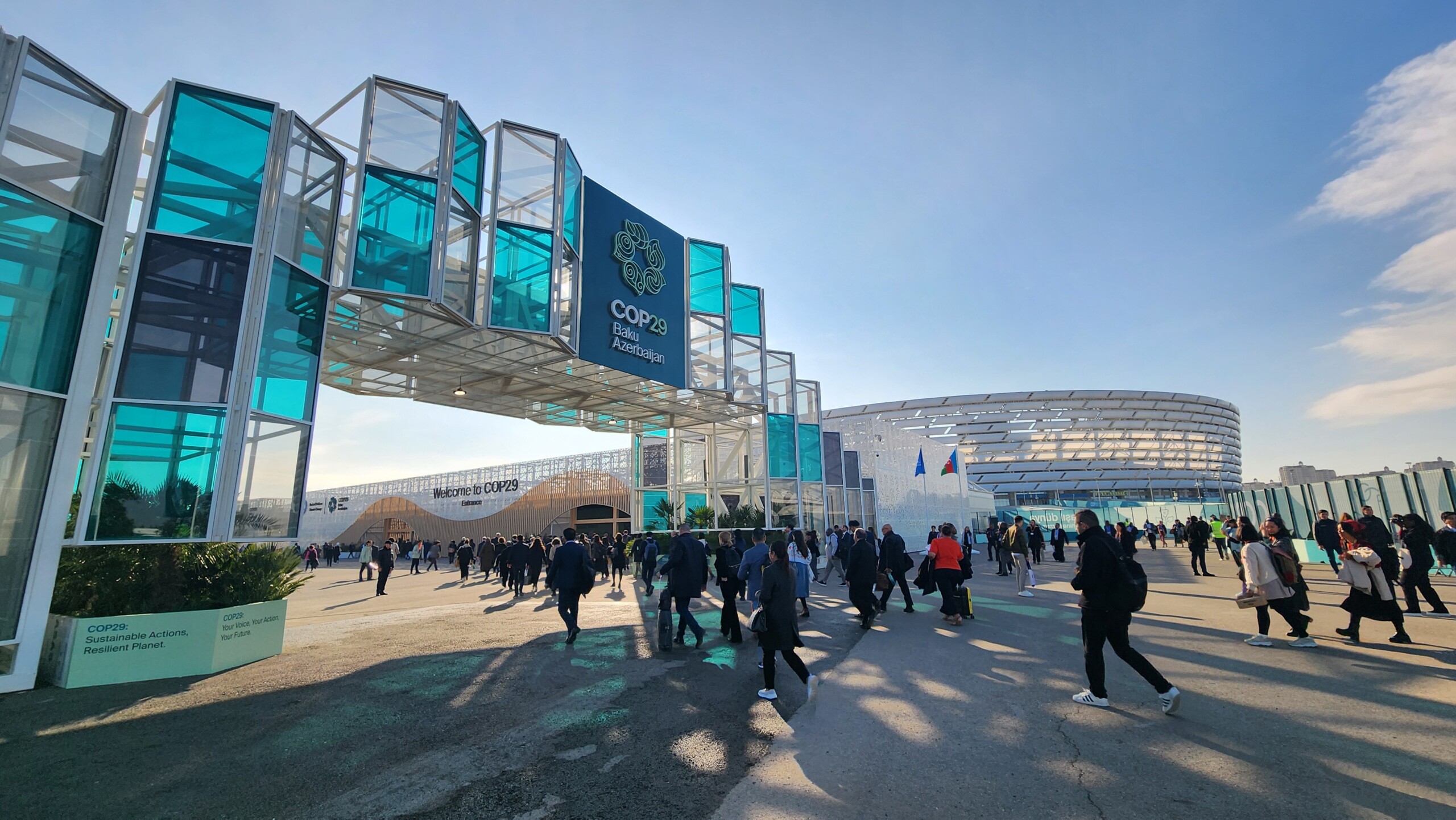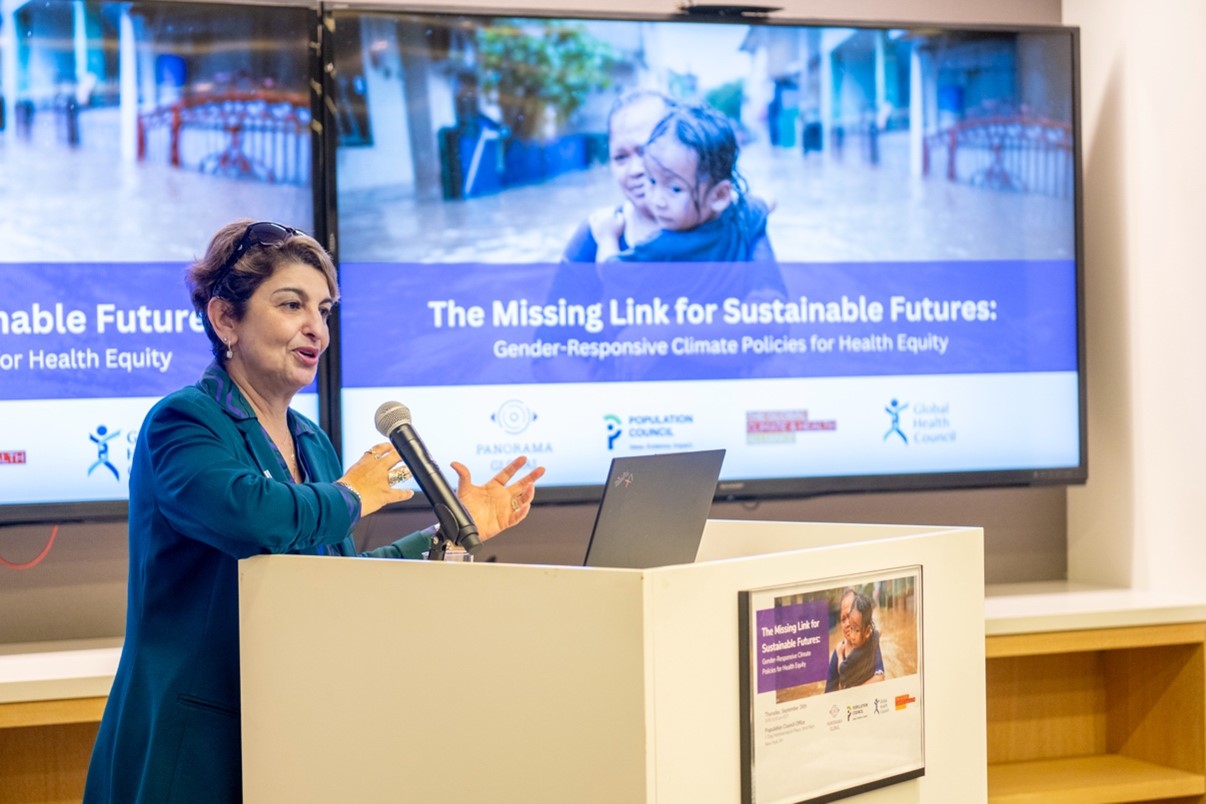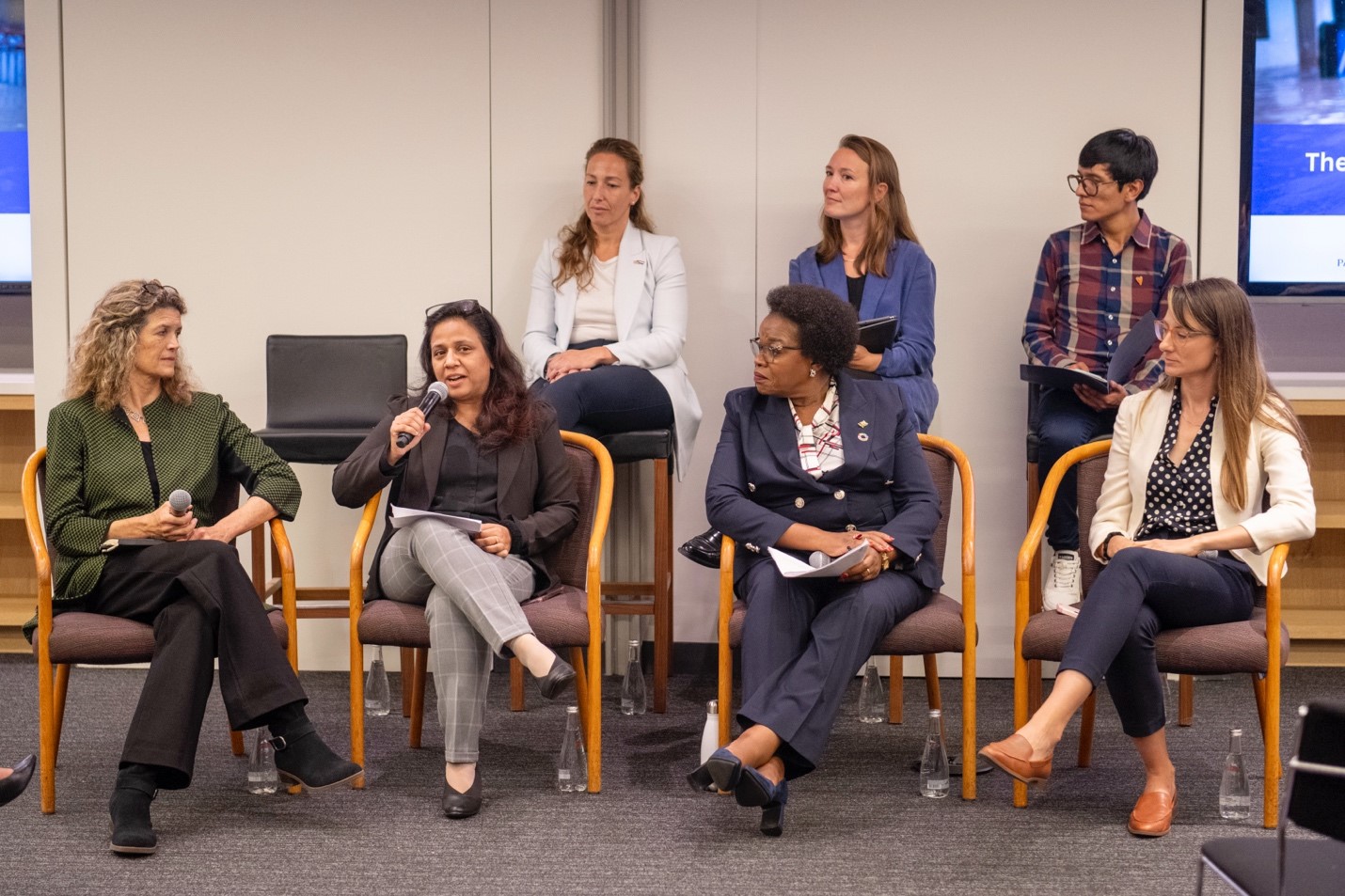
As world leaders gather for COP29 in Azerbaijan, we reflect on a pivotal dialogue that took place during UNGA 2024 that brought together over 80 stakeholders to address climate action, gender justice, and health equity. The Population Council’s PERCC Initiative, in collaboration with Panorama Global, Global Health Council and Global Climate and Health Alliance, convened The Missing Link for Sustainable Futures: Gender-Responsive Climate Policies for Health Equity. More details are provided with A Spotlight on Climate, Gender, and Health and UNGA79.

Dr. Rana Hajjeh, President of the Population Council, welcoming participants. Photo Credit: Rohanna Mertens.
Building Momentum: From UNGA to COP29
Dr. Rana Hajjeh, the Population Council’s new President, opened the dialogue with a powerful reminder: 30 years since the landmark 1994 UN International Conference on Population and Development (ICPD), millions still await the fulfillment of its promises. Climate change continues to disproportionately affect women and adolescent girls, including their sexual and reproductive health.
The event featured a distinguished panel of experts representing climate science, global health, diplomacy, youth advocacy, and donor agencies. Their collective expertise spanned global climate alliances, research institutions, national governments, youth organizations, and development partners.

From L-R front row: Jeni Miller (GCHA), Deepshikha Sharma (Population Council India), Ambassador to the UN Dr. Agnes Chimbiri (Govt of Malawi), Theodora Gibbs (YLabs). From L-R back row: Monica Schagen (Embassy of the Netherlands), Line Friberg Nielsen, (Ministry of Foreign Affairs of Denmark), Alan Jarandilla-Nuñez (International Youth Alliance for Family Planning). Photo credit: Rohanna Mertens.
Key Calls to Action for COP29 and Beyond
The dialogue crystallized three critical priorities for action:
Evidence to Action
While there is substantial evidence about the links between climate change, gender, and health, the challenge lies in translating research into actionable policy. Community innovations and lived experiences must be amplified to inform and shape climate and health financing strategies.
Fostering Cross-Sectoral Transformational Collaborations/Partnerships
The complexity of climate challenges demands integrated approaches beyond technical silos. We need stronger collaboration across ministries and sectors, with climate stakeholders incorporating public health considerations and social justice principles into their financing priorities and decision-making.
Strengthening Finance for Local Action
The funding gap for integrated climate-gender-health work remains critical. Organizations need sustained support to combat increasing misinformation and disinformation, with movement-building funds reaching local communities where solutions are being developed and implemented. Particular attention must be paid to supporting grassroots organizations and networks, including opportunities to engage with formal mechanisms like the Women and Gender Constituency of the UNFCCC.
Looking Forward
These insights from our UNGA dialogue take on renewed urgency at COP29. The conference’s focus on gender-responsive approaches validates our call for integrated solutions. Success requires sustained commitment, adequate resources, and unprecedented cross-sector collaboration.
For information about ongoing work at the climate-SRHR nexus, explore resources highlighted by our panelists:
- IYAFP Youth Declaration on SRHR and Climate Justice, uniting global youth voices demanding climate and reproductive rights action
- YLabs Climate x SRHR Evidence and Action Hub, mobilizing evidence-based action at the intersection of SRHR and climate resilience
- Danish Ministry of Foreign Affairs’ desk reviews mapping evidence on climate change’s impact on education, gender equality and SRHR
- Population Council PERCC’s Research, Evidence and Analysis on Climate and Health (REACH) Project, analyzing climate hazards’ impact on health outcomes, focusing on SRHR, nutrition, and mental health in vulnerable communities
Contact percc@popcouncil.org to learn more about our climate initiatives, or partner with us on investment, research, outreach and education, fundraising opportunities, or communications.
